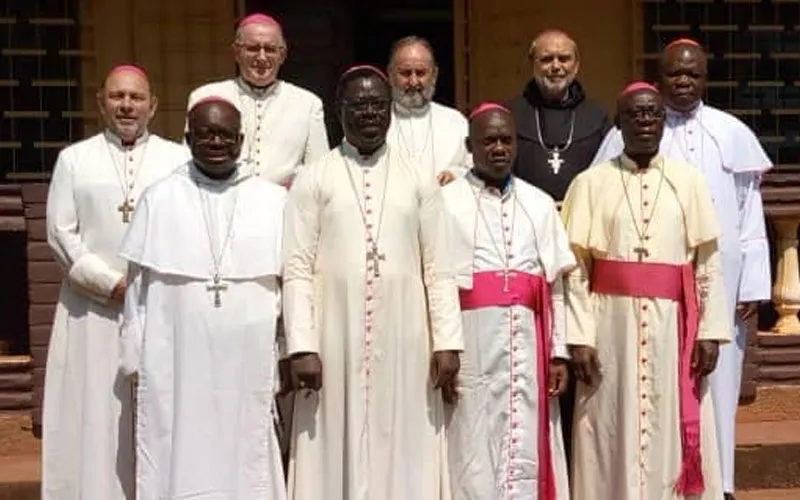The Catholic Church leaders say they find it regrettable that “we are witnessing the villainous hostage-taking of government officials and humanitarian workers, and the heinous assassinations of travelers.”
With the dry season beginning, CECA members say, “It is feared that there will be an upsurge in excesses by armed groups, plunging the Central African population into a continual cycle of violence and nuisance.”
They call upon the government “to continue to fight relentlessly, with firmness and determination, for security and peace, the free movement of goods and of our fellow citizens.”
In their collective message titled, “Communion and Participation for the Building of our Church and country,” CECA members go on to express concern about land grabbing and dilapidation of land assets.
“The risk of a socio-political and economic crisis and the security issue should not prevent us from taking into consideration the growing phenomenon of land ownership,” they say.
(Story continues below)
The Catholic Bishops note that CAR has always been “a welcoming and hospitable land. Against all forms of xenophobia, hospitality and the welcoming of foreigners are inscribed at the heart of our Christian faith and in gold letters at the top of our ancestral and cultural values.”
“It is with a lot of questions that we are witnessing today a real eagerness and a rush of the nationals of the sub-region and even beyond it for the purchase of land,” CECA members say.
They continue, “We are aware that the underpopulation of the immense surface of our country, the abundant rainfall and the fertility of our soil, the immense potentiality of our arable spaces, our natural, forestry and mining wealth are attracting a lot of covetousness and generating as much suffering.”
As a way forward, CECA members advocate for “constructive dialogue” and a spirit of “consensus”.
“In the context of a social and political climate where we have been witnessing for some time the disturbing rise of mistrust, slander, hate speech, threats and insults, it is appropriate that each daughter and son of the country give priority to the search for constructive dialogue, consensus and compromise in truth,” the Catholic Bishops in CAR say in their January 15 statement shared with ACI Africa.
Constructive dialogue, they say, “must be promoted at all levels of society, beginning in families, in the different structures of our Church, and in the public, political and administrative spaces.”
“The search for the common good must be the compass of all actors in social and political life,” Catholic Bishops in CAR say in their eight-page statement.
Jude Atemanke is a Cameroonian journalist with a passion for Catholic Church communication. He holds a Bachelor’s Degree in Journalism and Mass Communication from the University of Buea in Cameroon. Currently, Jude serves as a journalist for ACI Africa.








